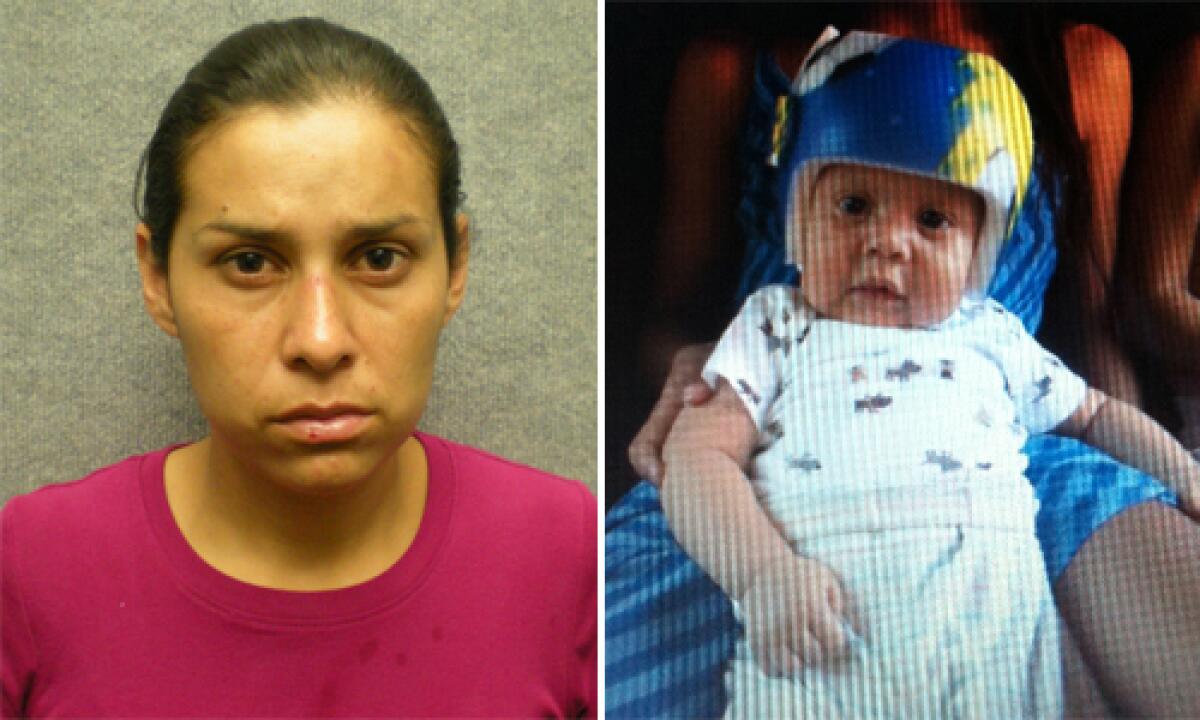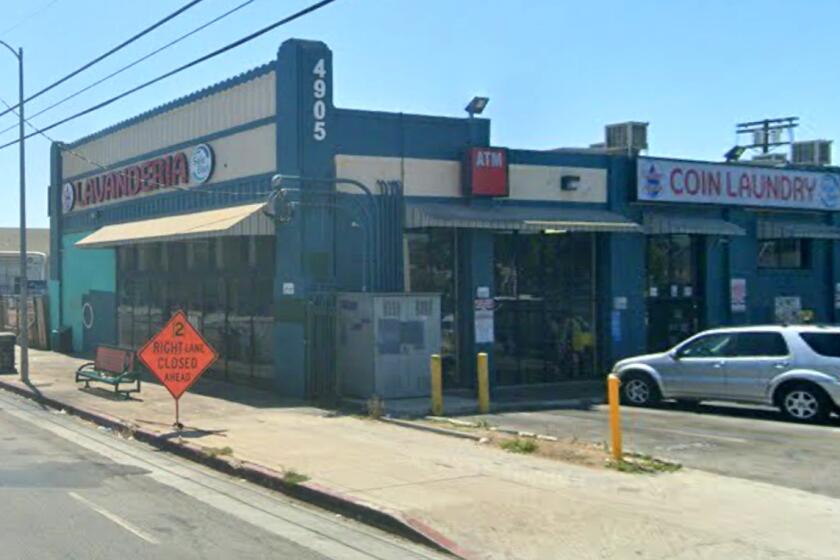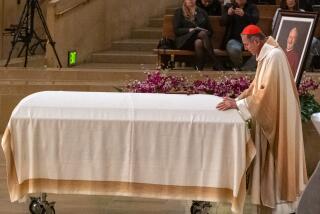She got 25 years to life for tossing son four floors. Court says probation should be considered

An Orange County woman wrapped her 7-month-old son in a white blanket, removed the helmet that was used to treat a medical condition, and placed him at the edge of the wall atop a fourth-floor parking structure adjacent to a children’s hospital.
Then she pushed.
The child — named Noe Medina Jr., after the father who feared his wife was mentally unstable and dangerous — fell to his death, a victim of severe blunt cranial trauma.
Although a California 4th District Court of Appeal on Monday upheld the murder conviction of La Habra’s Sonia Hermosillo, the three justices remanded the sentencing to a lower court.
Hermosillo was originally sentenced to 25 years to life in the summer of 2021, and the judges asked the trial judge in the case, Kimberly Menninger, to consider elements such as mental illness when determining a new sentence.
Associate Justice William W. Bedsworth wrote on behalf of the district court that its role was “not to render judgment in a moral sense, but only as to the legal issues raised.”
“We conclude the trial court failed to take some necessary factors into account during sentencing when considering whether appellant was eligible for probation,” he wrote.
A spokesperson for California Atty. Gen. Rob Bonta, who was listed as the main plaintiff, said his office was not interested in issuing a response.
Baby Noe Medina Jr. was the third child born to Hermosillo and Medina Sr. in January 2011. The couple are raising two daughters.
The woman was convicted 10 years after dropping her 7-month-old son off the fourth floor of the garage at Children’s Hospital of Orange County. Her husband said she had postpartum psychosis.
Medina Jr. was born late term, which led to “several physical challenges which required medical care,” including flat head syndrome.
Despite those issues, Hermosillo “diligently took her son to his appointments and worked with his care team to ensure he was progressing in his treatments,” according to court documents. One of those treatments was the use of a helmet.
A few months into the child’s life, Hermosillo’s “behavior completely changed,” court documents noted.
Medina began to take his wife to mental health professionals but was unable to continue treatment because of the costs, court documents noted.
At one point, Hermosillo was hospitalized on an involuntary hold for “being gravely disabled and a danger to herself,” according to court documents.
Medina was financially unable to continue paying expenses and signed her out “against medical advice,” according to court documents.
On Aug. 22, 2011, while her husband was in the restroom of their La Habra home, Hermosillo took the infant and drove to Children’s Hospital of Orange County, where Medina Jr. had been receiving treatments.
She reached the top of the four-story parking structure and threw the baby down.
A witness said that Hermosillo appeared “normal” and “calm” but with a “lost look on her face” during and shortly after the act, according to court documents.
Ivette Melissa Gonzalez of Los Angeles, arrested in 2018 on suspicion of murdering her 9-month-old daughter, Selena, has been ordered to stand trial.
Orange Police Department detectives arrested Hermosillo near the crime scene and interrogated her in Spanish. She continued to say, “I don’t love him,” when referring to her son but didn’t fully grasp what had happened, according to court documents.
Hermosillo was arraigned on Sept. 30, 2011. Over the course of 10 years, she was alternately found competent and then incompetent to stand trial in court.
In February 2015, Hermosillo was committed to forensic psychiatric Patton State Hospital in San Bernardino County.
The trial resumed in January 2020 after Hermosillo was declared competent for trial. She pleaded guilty for reasons of insanity, and her husband said she acted because she suffered from postpartum psychosis.
One of her two daughters begged the judge to understand her mother was “not an evil person.”
Bedsworth wrote that there were multiple errors when considering Hermosillo’s mental state, including whether such conditions affected her culpability.
“The grim and paradoxical reality of our system of justice is that it is sometimes unable to deliver a result which feels truly just to all involved,” he wrote. “This case provides an especially heartbreaking illustration.”
More to Read
Sign up for Essential California
The most important California stories and recommendations in your inbox every morning.
You may occasionally receive promotional content from the Los Angeles Times.













